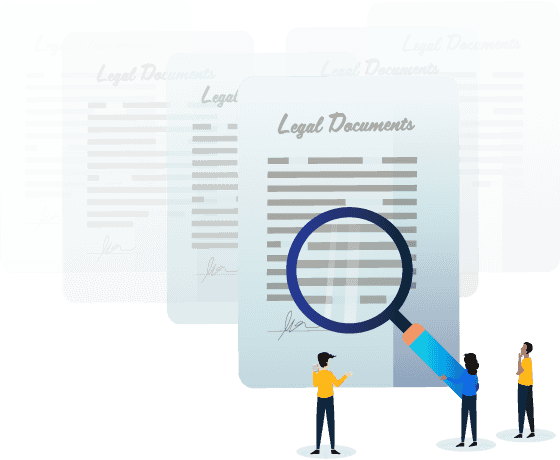While not always required, employment contracts are a strong tool to protect your business against any legal liabilities employment may expose you to. Within it, you can outline the various expectations, obligations and responsibilities that both you and your employee are to take on within your business relationship.
As with any legitimate contract, having a signed, written agreement will bind your employee to whatever is in it.
Here are the 5 key areas where a strong employment contract may protect your business should any legal issues arise.

Get your full time employment agreement now for free.
Hire your employees and protect your business with our full time employment agreement.
Get now1. Outlining Expectations
Including provisions outlining your expectations regarding the role and competency of the employee may avoid unnecessary lawsuits for wrongful termination. Within these, if it is important to make clear:
- What the role involves and if or how it may change
- Your expectations of the employee’s performance
- What may entitle you to terminate their contract
Doing so will ensure that there is evidence of what kind of performance was agreed to if a situation requiring termination arises.
However, various federal and state laws and award schemes will dictate what these expectations can be set at. While it is important to make clear what you expect of your employee, it is similarly important to make sure you set reasonable expectations of them.
2. Providing Policies and Procedures
Employment contracts also protect your business from lawsuits over issues of safety and misconduct. These will likely cover issues like employee misconduct, safety expectations and discrimination policies. If you have an existing business it is likely you will have already have various policies and procedures in place to address these.
In particular, safety policies may protect you from lawsuits. Creating strong foundations of training and expectations when it comes to safety in the workplace will at least protect you from lawsuits for employee negligence.
Furthermore, consider how Australian law and award schemes protect employee rights. Without appropriate protocols for misconduct, you may be liable for any of your employee’s wrongdoings.
3. Ensuring Confidentiality
Protecting your businesses information is becoming more important than ever. Where it is now easier for vital information to be leaked via the internet, ensuring that your employee is aware of what information may and may not be shared is extremely important. Likewise, outlining the consequences may protect you from the ramifications of confidentiality breaches.
However, these provisions will not protect you entirely. Depending on the size and role of your business, certain levels of whistleblower policies may be required to protect your employee’s rights. These policies are rather complex and recent changes to the law may mean they affect your business differently.
We recommend contacting a lawyer if you require further information on this.
4. Clarifying Pay and Entitlements
It is extremely important to ensure there is a contractual agreement with your employee for how they will be remunerated by the business. These may include:
- Salary or hourly rate
- Expenses and vehicle entitlements
- Equity entitlements
- Benefits, such as health insurance
Having these in signed employment contracts will mean you are protected from any legal action for non-compliance. That is unless you don’t follow it yourself.
5. You Can Include A Non-Compete Provision in Your Employment Contract
You can still protect your businesses information and assets from an ex-employee. A non-compete provision protects your businesses ideas, information or assets from being used by a former employee to benefit another party. This is extremely important as a spiteful former employee may want to jeopardise your business.
Conclusion
Ultimately, an employment contract ensures that there is concrete evidence of your expectations of your employee. Therefore, if there are any issues regarding the employee’s expectations of their employment, you may refer back to the contract to avoid legal repercussions.
Though, take note: just as they must abide by it, so must you. So only include what you are willing what you are going to uphold.





